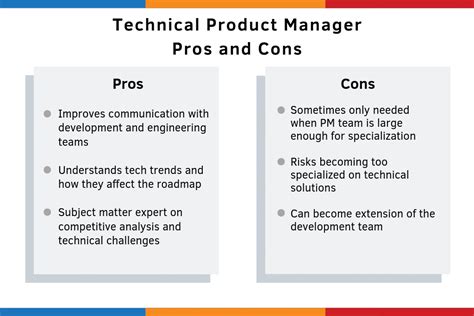In today's fast-paced and rapidly evolving business landscape, companies are constantly seeking innovative ways to stay ahead of the competition. One key area of focus is the development and execution of effective product strategies. Traditionally, product management has been the domain of technical experts, but a new breed of leaders is emerging: the non-tech product manager. These individuals bring a unique combination of skills, experience, and perspectives to the table, enabling them to drive growth, innovation, and success in a wide range of industries.

The Rise of Non-Tech Product Managers
In recent years, there has been a significant shift in the way companies approach product development. No longer is it solely the domain of technical experts, but rather a collaborative effort that requires input from a diverse range of stakeholders. Non-tech product managers have emerged as key players in this process, bringing a fresh perspective and a unique set of skills to the table.
So, what exactly is a non-tech product manager? Simply put, it's an individual who has a deep understanding of the business, market, and customer needs, but may not have a traditional technical background. They are often generalists, with expertise in areas such as marketing, sales, or operations, and have a strong ability to communicate and collaborate with cross-functional teams.
Benefits of Non-Tech Product Managers
So, why are non-tech product managers becoming increasingly popular? There are several benefits to having these individuals on board:
- Fresh Perspective: Non-tech product managers bring a fresh perspective to the product development process. They are not bound by traditional technical constraints and are free to think outside the box.
- Customer Focus: Non-tech product managers are often more customer-focused than their technical counterparts. They have a deep understanding of customer needs and are able to prioritize features and functionality accordingly.
- Communication Skills: Non-tech product managers are skilled communicators, able to effectively articulate the product vision and strategy to both technical and non-technical stakeholders.
- Business Acumen: Non-tech product managers have a strong understanding of the business and are able to make data-driven decisions that drive growth and revenue.
Key Skills for Non-Tech Product Managers
So, what skills do non-tech product managers need to be successful? Here are a few key areas of focus:
- Communication: The ability to effectively communicate with both technical and non-technical stakeholders is critical.
- Business Acumen: A strong understanding of the business and market is essential for making data-driven decisions.
- Customer Focus: A customer-centric approach is critical for prioritizing features and functionality.
- Collaboration: The ability to work effectively with cross-functional teams is essential for driving product development forward.

Best Practices for Non-Tech Product Managers
So, how can non-tech product managers be successful? Here are a few best practices to keep in mind:
- Stay Curious: Continuously seek out new information and stay up-to-date on industry trends and developments.
- Build Relationships: Foster strong relationships with cross-functional teams, including engineering, design, and marketing.
- Prioritize Customer Needs: Prioritize features and functionality based on customer needs and feedback.
- Measure and Optimize: Continuously measure and optimize the product to drive growth and revenue.
Real-World Examples of Non-Tech Product Managers
There are many examples of successful non-tech product managers in a wide range of industries. Here are a few:
- Airbnb: Airbnb's product team is led by a non-tech product manager who has a strong background in marketing and customer experience.
- Uber: Uber's product team is led by a non-tech product manager who has a strong background in operations and logistics.
- Warby Parker: Warby Parker's product team is led by a non-tech product manager who has a strong background in marketing and customer experience.

Conclusion
In conclusion, non-tech product managers are becoming increasingly popular in a wide range of industries. These individuals bring a unique combination of skills, experience, and perspectives to the table, enabling them to drive growth, innovation, and success. By understanding the benefits, key skills, and best practices for non-tech product managers, companies can unlock the full potential of their product teams and drive business success.
What's Next?
As the role of non-tech product managers continues to evolve, it's essential to stay up-to-date on the latest trends and developments. Here are a few things to keep an eye on:
- Emerging Technologies: Stay ahead of the curve by keeping an eye on emerging technologies such as AI, blockchain, and the Internet of Things.
- Industry Trends: Continuously monitor industry trends and developments to stay ahead of the competition.
- New Skills: Continuously develop new skills and expertise to stay relevant in a rapidly evolving business landscape.
Final Thoughts
In final thoughts, non-tech product managers are a new era of leadership that can drive growth, innovation, and success in a wide range of industries. By understanding the benefits, key skills, and best practices for non-tech product managers, companies can unlock the full potential of their product teams and drive business success.
Gallery of Non-Tech Product Managers






What is a non-tech product manager?
+A non-tech product manager is an individual who has a deep understanding of the business, market, and customer needs, but may not have a traditional technical background.
What are the benefits of having a non-tech product manager?
+The benefits of having a non-tech product manager include a fresh perspective, customer focus, communication skills, and business acumen.
What skills do non-tech product managers need to be successful?
+Non-tech product managers need to have strong communication, business acumen, customer focus, and collaboration skills to be successful.
